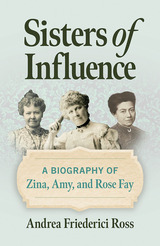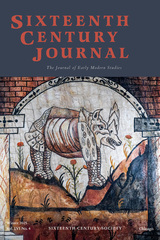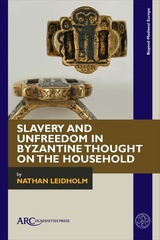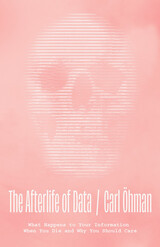
These days, so much of our lives takes place online—but what about our afterlives? Thanks to the digital trails that we leave behind, our identities can now be reconstructed after our death. In fact, AI technology is already enabling us to “interact” with the departed. Sooner than we think, the dead will outnumber the living on Facebook. In this thought-provoking book, Carl Öhman explores the increasingly urgent question of what we should do with all this data and whether our digital afterlives are really our own—and if not, who should have the right to decide what happens to our data.
The stakes could hardly be higher. In the next thirty years alone, about two billion people will die. Those of us who remain will inherit the digital remains of an entire generation of humanity—the first digital citizens. Whoever ends up controlling these archives will also effectively control future access to our collective digital past, and this power will have vast political consequences. The fate of our digital remains should be of concern to everyone—past, present, and future. Rising to these challenges, Öhman explains, will require a collective reshaping of our economic and technical systems to reflect more than just the monetary value of digital remains.
As we stand before a period of deep civilizational change, The Afterlife of Data will be an essential guide to understanding why and how we as a human race must gain control of our collective digital past—before it is too late.
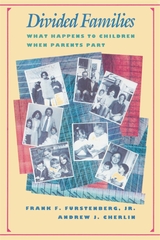

Seeking to sustain Stein's lively, pleasant, populist spirit, Watson shows how the writer's playful entanglement of sight and sound--of silent reading and social speaking--reveals the crucial ambiguity by which reading and conversation build communities of meaning, and thus form not only personal relationships but also our very selves and the larger political structures we inhabit. Stein reminds us that the residual properties of words and the implications behind the give-and-take of ordinary conversation offer alternatives to linear structures of social order, alternatives especially precious in times of political oppression. For example, her novels Mrs. Reynolds and Brewsie and Willie, both written in embattled Vichy France, contemplate the speech patterns of totalitarian leaders and the ways in which everyday discourse might capitulate to--or resist--such verbal tyranny.
Like recent theorists, Stein recognized the repressiveness of conventional order--carried in language and thus in thought and social organization--but as Watson persuasively shows, she also insisted that the free will of individuals can persist in language and enable change. In the play of literary aesthetics, Stein saw a liberating force.
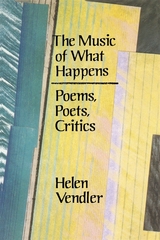
“Essential Vendler.”
—Chicago Tribune
A leading partisan of close reading defends aesthetics as the beating heart of criticism.
The late 1970s and early 1980s witnessed a sea change in literary criticism. As deconstruction, Marxism, feminism, and other currents dethroned the New Criticism in the American academy, those who held fast to formalist approaches appeared increasingly outmoded. Critics, as Helen Vendler put it, had been “put on notice” by literary theory.
Fortunately, Vendler was up to the challenge. The essays and reviews collected in The Music of What Happens make a defiantly unfashionable case for her stalwart aestheticism. According to Vendler, the critic’s job is neither to interpret the poem, uncovering the secret meaning lurking beneath its surfaces, nor to unmask its ideological underpinnings, but to describe how the interplay of form and signification creates a unique and cohesive aesthetic experience. Good criticism illuminates the qualities that make each poem unlike any other: it explains not only what happens in the text but also, as Seamus Heaney once wrote, “the music of what happens.”
Including magisterial assessments of her fellow critics and literary theorists, from Roland Barthes and Geoffrey Hartman to Harold Bloom and Lionel Trilling, as well as characteristically acute appraisals of a wide range of contemporary and canonical poets, The Music of What Happens shows the rich dividends that accrue when we treat literature as a fine art like painting or sculpture rather than a discourse to be decoded and evaluated in social and historical terms. Above all, we become more attuned to the pleasures of reading—and even the pleasures of criticism itself.

“Essential Vendler.”
—Chicago Tribune
A leading partisan of close reading defends aesthetics as the beating heart of criticism.
The late 1970s and early 1980s witnessed a sea change in literary criticism. As deconstruction, Marxism, feminism, and other currents dethroned the New Criticism in the American academy, those who held fast to formalist approaches appeared increasingly outmoded. Critics, as Helen Vendler put it, had been “put on notice” by literary theory.
Fortunately, Vendler was up to the challenge. The essays and reviews collected in The Music of What Happens make a defiantly unfashionable case for her stalwart aestheticism. According to Vendler, the critic’s job is neither to interpret the poem, uncovering the secret meaning lurking beneath its surfaces, nor to unmask its ideological underpinnings, but to describe how the interplay of form and signification creates a unique and cohesive aesthetic experience. Good criticism illuminates the qualities that make each poem unlike any other: it explains not only what happens in the text but also, as Seamus Heaney once wrote, “the music of what happens.”
Including magisterial assessments of her fellow critics and literary theorists, from Roland Barthes and Geoffrey Hartman to Harold Bloom and Lionel Trilling, as well as characteristically acute appraisals of a wide range of contemporary and canonical poets, The Music of What Happens shows the rich dividends that accrue when we treat literature as a fine art like painting or sculpture rather than a discourse to be decoded and evaluated in social and historical terms. Above all, we become more attuned to the pleasures of reading—and even the pleasures of criticism itself.

READERS
Browse our collection.
PUBLISHERS
See BiblioVault's publisher services.
STUDENT SERVICES
Files for college accessibility offices.
UChicago Accessibility Resources
home | accessibility | search | about | contact us
BiblioVault ® 2001 - 2025
The University of Chicago Press


